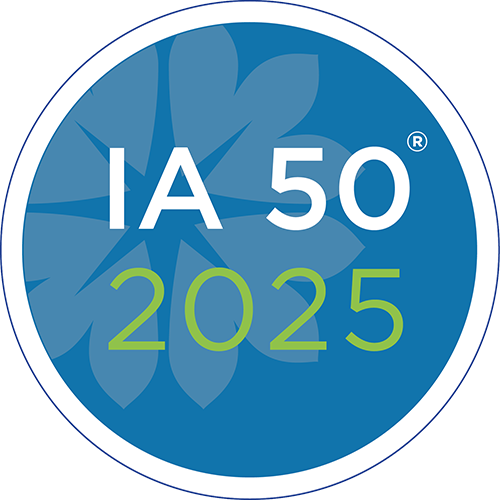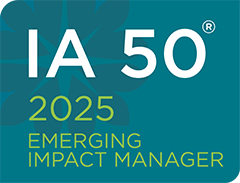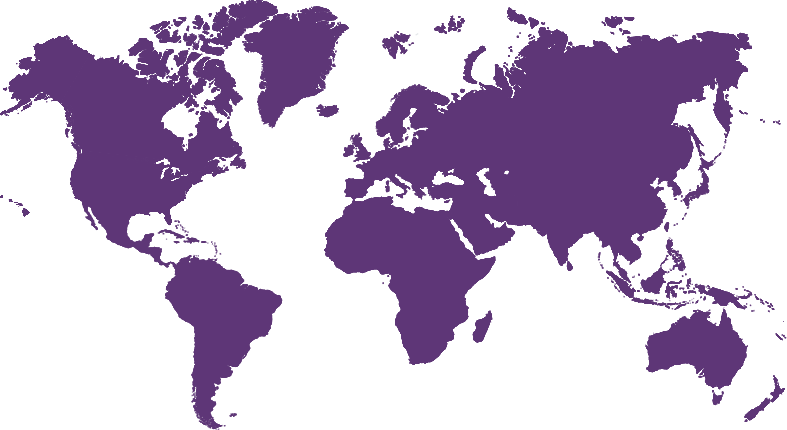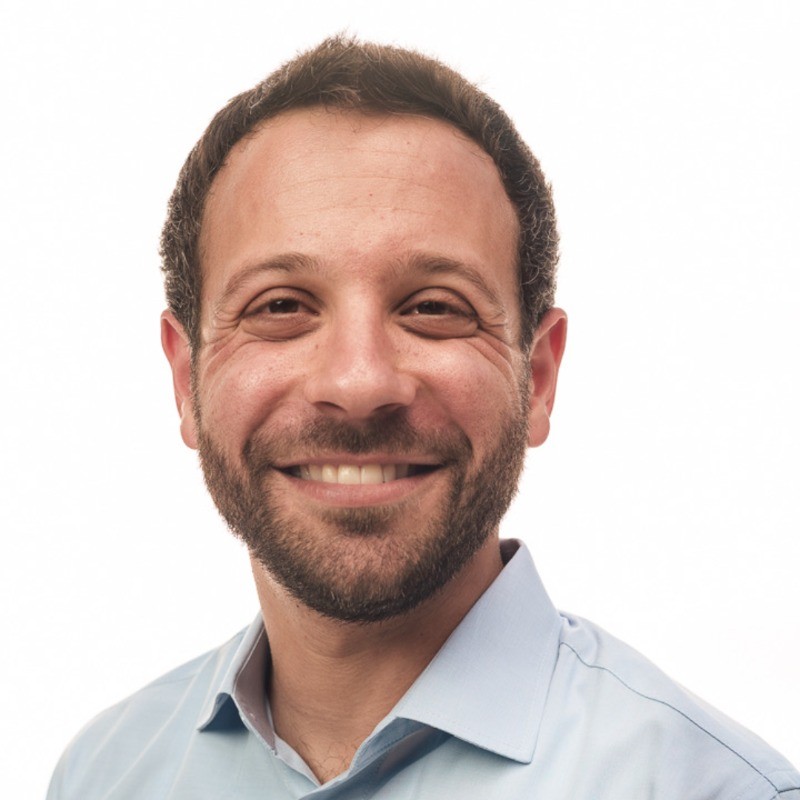IMPACTASSETS 50™
An Annual Showcase of Impact Investment Fund Managers

ImpactAssets 50
An Annual Showcase of Impact Investment Fund Managers

Kiva Capital Management, LLC

 Entrepreneurship and Job Creation
Entrepreneurship and Job Creation Financial and Economic Inclusion
Financial and Economic Inclusion Microfinance and Low-income Financial Services
Microfinance and Low-income Financial ServicesFirm Overview
Established in 2019 as a subsidiary of the nonprofit Kiva Microfunds (“Kiva”), Kiva Capital Management, LLC (“Kiva Capital”) is an asset manager that leverages the impact mission, well-established network, and institutional partnerships of Kiva to provide investment solutions expanding financial access for underserved communities. Building upon nearly 20 years of Kiva’s microfinance experience, Kiva Capital ultimately represents Kiva’s scaled vision for global financial inclusion. Kiva Capital partners with a wide range of impact investors and philanthropic organizations to make private debt investments in emerging markets-based financial service providers (FSPs) and innovative social enterprises (SEs) serving communities often left out of traditional markets. Kiva Capital currently manages two thematic impact funds, one that supports small business resilience, and another that provides financial access to refugees and displaced populations. Though neither impact fund has a gender mandate, the majority of Kiva Capital end borrowers are women, representing Kiva’s deep commitment to intersectionality.
Years of Operation: 3 – 4 years
% of Capital from Top 3 Investors: 50% – 99%
Kiva Capital envisions a financially-inclusive world where all people, regardless of socioeconomic status, have access to affordable and scalable capital.
At Kiva, we believe financial access is a right, not a privilege. Kiva Capital envisions a financially inclusive world where all people, regardless of socioeconomic status, have access to reliable and scalable capital. Serving as the bridge that links underserved communities to investment capital, Kiva Capital is an impact-first asset manager that supports investees in meeting impact goals through robust measurement and management strategies. Impact-first is one of Kiva’s six core values, and is embedded throughout all decisions made by our organization– especially our investment decisions. Kiva Capital carries out this impact-first investment thesis through two impact funds- the Kiva Refugee Investment Fund (KRIF) and the Small Business Resilience Fund (SBRF)- which provide private debt investments to organizations driving financial inclusion for displaced communities and small business owners, respectively. All investment decisions made by Kiva Capital utilize our Impact Scorecard to predict overall and thematic impact depth.
Over the past two decades, Kiva has built relationships with 200+ financial service providers and social enterprises in 90+ countries by providing risk-tolerant capital. This unique network of wide-ranging relationships enables Kiva Capital to provide the next layer of investment for financially sustainable institutions that are deeply committed to scaling their impact among Kiva’s target populations. One of Kiva Capital’s main focus areas is lending to refugees and displaced populations. Very few impact funds intentionally target this impact population like KRIF, especially given the stigma surrounding refugees as too risky to serve. However, this financial system failure is one of the core challenges Kiva Capital seeks to address through KRIF to advance income justice for financially excluded and displaced populations. Alongside investments, Kiva Capital also provides technical assistance to ensure that lending programs are well-designed, positioned to scale, and developed to best suit the needs of displaced populations.
Investment Example
A Kiva partner since 2012, UGAFODE is a Ugandan MFI that began lending to refugees for the first time in 2019 via our crowdfunding platform. After becoming the leading MFI in Uganda serving refugees, UGAFODE scaled this work in 2021 with funding from the Kiva Refugee Investment Fund (KRIF). As one of KRIF’s earliest investments, UGAFODE received a $1.0M loan to scale their lending in refugee settlements; in 2023, KRIF provided UGAFODE with an additional $1.5M loan to support their expansion of refugee lending throughout the country. In 2024, Kiva partnered with the Hilton Foundation to provide UGAFODE with capacity building funding to establish a sales center directly within a refugee settlement– a critical step in achieving their desired growth in the refugee lending space. A high-impact organization driving financial inclusion for underserved populations, UGAFODE is estimated to have reached over 8,000 displaced borrowers with KRIF funding.
Leadership and Team
 |
Kathy Guis – Executive Vice President of Investments More Info
Kathy Guis leads Kiva’s globally distributed team of investment professionals covering Kiva’s crowdfunded and institutional investment activities in financial services providers and social enterprises. Having spent over a decade with Kiva working on the organization’s uniquely diverse portfolio of investments, Kathy brings insight into the capital needs of vulnerable populations and the institutions that serve them around the world, with particular focus on client-centric product design and practices, gender equity, investing in smallholder farmers, and climate smart investing. |
 |
Nicolas Lafaye – Senior Director of Investments More Info
Nicolas serves as the Senior Director of Investments overseeing Kiva Capital Funds, the Kiva Refugee Investment Fund (KRIF) and the Kiva Small Business Resilience Fund (SBRF). Since joining Kiva in 2010, Nicolas has been an Investment Manager for South America and Southeast Asia and the Pacific as well as Regional Director for Latin America and the Caribbean and head of Kiva's Social Enterprise investment program. Prior to Kiva, Nicolas spent two and a half years in Hong Kong working for Société Générale Investment Bank. He is a native French speaker and also fluent in Spanish. He holds a Master’s degree in International Affairs from the Dauphine University Paris, France. |
 |
Lev Plaves – Investment Director More Info
Lev serves as the portfolio manager for the Kiva Refugee Investment Fund (KRIF). In addition, he leads Kiva’s work globally catalyzing loans to refugees and displaced populations. Lev joined Kiva in 2012 managing the Middle East portfolio and he originally was based in Istanbul, Turkey. Lev spearheaded the launch of Kiva.orgs work with refugees in 2016, utilizing the crowdfunding platform to demonstrate the viability of lending to displaced populations. Prior to Kiva, Lev spent three years in Palestine, where he worked for a multi-million dollar USAID project. He received a Bachelor’s degree in Political Science from Wesleyan University and speaks Arabic. |
Financial Performance
Impact Performance
|
Percentage of Total Assets Under
Management that are Impact Investments: |
100%
|
During due diligence, each prospect is assessed on their overall potential impact and receives a partner impact score (PIS) according to Kiva’s Impact Scorecard (ISC). The PIS is determined by a partner’s targeting, product, process, and mission alignment subscores. These subscores analyze details on our partners’ social goals, population of impact, internal policies and practices, products and service development, client protection principles, alignment with Kiva’s impact strategy, and the extent to which they trigger a positive impact that would not have otherwise occurred. In May 2024, Kiva revamped its ISC to also include theme-specific ratings– including a gender and refugee rating– that pull out dimensions of impact identified as areas of priority across Kiva’s portfolio. These thematic ratings supplement, but are not part of, the partner’s overall PIS and allow us to track both an investee’s improvement over time, as well as thematic changes at the portfolio level.
Each Kiva Capital prospective investee is assessed on their female staff turnover ratio, % women staff, % women loan officers, % women board members, % refugee loan officers, and whether they provide staff anti-bias training to eliminate biases due to gender, race, ethnicity, and/or refugee status. Kiva Capital also inquires about employee support policies, including paid parental leave, equal retention and promotion practices, and sexual harassment prevention policies. Investees are also asked about their senior leadership and board members' demographics and involvement with their end clients; particularly, whether or not senior leadership and/or board members reside in the same country as their target clients, if they are representative of the target clients’ background, and how many have firsthand experience interacting with clients. Investees are asked what additional supportive services they provide, including environmental services promoting sustainability and conservation initiatives, such as waste management, renewable energy projects, and ecological restoration efforts.
Impact Tracking and Monitoring
Learn More
986 Mission Street, San Francisco, CA 94103 USA
Apply for the IA 50 2022
The application period to become an ImpactAssets 50 2022 Fund Manager will open in September 2021!
To stay informed on the application process, sign up here.
